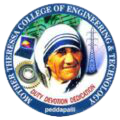Industrial Engineering and Management
Industrial engineering and engineering management is concerned with the design, improvement, installation, and management of integrated systems of people, material, and equipment.

Graduates of the program employ a set of skills that includes mathematical modeling, probability and statistics, computer science, human factors, interpersonal skills, project management, and an ability to manage and administer large technical engineering and research projects. Thus, Industrial engineering and engineering management may be thought of as applied problem-solving, from inception to implementation and management.
Program Objectives:
The objectives of the industrial engineering and engineering management program are to produce graduates who:
- Contribute to the success of companies through effective problem solving
- Design, develop, implement, and improve integrated systems that include people, materials, information, equipment, and environments
- Effectively manage business operations and project management teams
- Continue to develop holistically, including the personal and professional skills necessary to adapt to our changing societal, technological, and global environments
- Graduates of the industrial engineering and engineering management program are expected to meet the challenges for contemporary professional practice; be able to adapt and solve the increasingly complex problems faced by industry; embrace innovation through intellectual diversity and creative problem solving; and continue to develop holistically as a learner to become leaders of tomorrow
Program Outcomes:
At the time of graduation students completing the BS IEEM degree will be able to demonstrate the following outcomes.
- An ability to identify, formulate, and solve complex engineering problems by applying principles of engineering, science, and mathematics
- An ability to apply engineering design to produce solutions that meet specified needs with consideration of public health, safety, and welfare, as well as global, cultural, social, environmental, and economic factors
- An ability to communicate effectively with a range of audiences
- An ability to recognize ethical and professional responsibilities in engineering situations and make informed judgments, which must consider the impact of engineering solutions in global, economic, environmental, and societal contexts
- An ability to function effectively on a team whose members together provide leadership, create a collaborative and inclusive environment, establish goals, plan tasks, and meet objectives
- An ability to develop and conduct appropriate experimentation, analyze and interpret data, and use engineering judgment to draw conclusions
- An ability to acquire and apply new knowledge as needed, using appropriate learning strategies.
